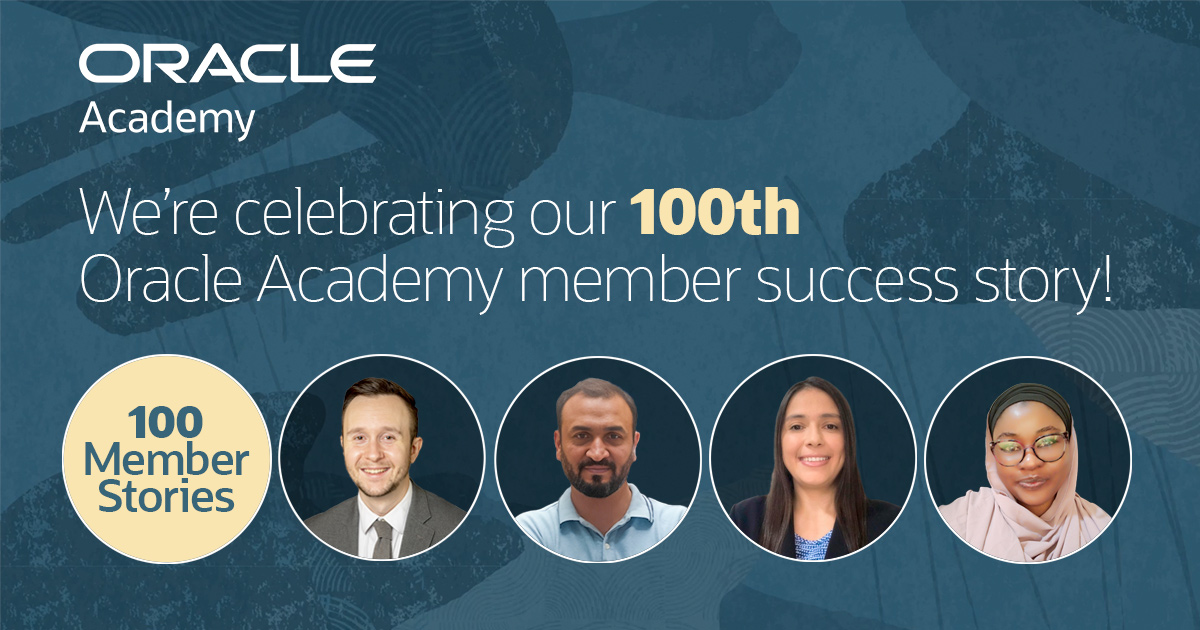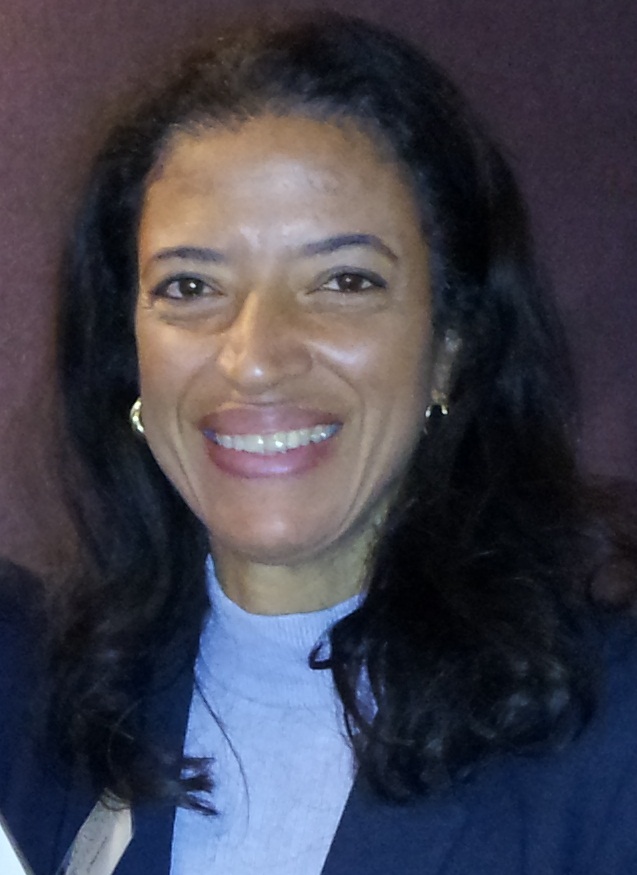Oracle Academy is pleased to highlight the amazing work of our members around the globe to help students develop career-ready knowledge, skills, and hands-on practice and become the next generation of technology leaders, innovators and disruptors.
How do they do that? By employing free Oracle Academy technology resources for teaching and learning, including Oracle APEX, Oracle Cloud, Oracle NetSuite, Oracle Primavera, and curriculum focused on Java, database, cloud, and project management.
And this month, we celebrate publishing our 100th member success story—from 40-plus countries! Each member impacts the lives of hundreds or even thousands of students, and their dedicated work empowers graduates with key knowledge and skills and improves local economies around the globe.
Let’s take a look at the work just a few of our members are doing to help their students learn and engage in technology.
Oracle APEX, Java and database curriculum
Dr. Saleem Iqbal is Associate Professor, Allama Iqbal Open University, Pakistan, the second largest open university in the world, with over 1.3 million students enrolled in 2,000 courses. The university also is an Oracle customer. Dr. Iqbal notes that Oracle Academy curriculum is a perfect fit with the formal requirements of the Higher Education Commission of Pakistan. The university began with using Java Foundations and Database Foundations and rapidly incorporated materials from the entire Oracle Academy Java and database curriculum offering. In the database courses, Iqbal employs Oracle APEX, “the perfect hands-on practice environment,” he says. “It embraces SQL and Oracle Autonomous Database, and provides the examples, scenarios, and case studies with which to create different database schemas. One of our courses covers programming languages, and APEX allows me to drill down through SQL to subdomains such as Data Description Language (DDL), Data Manipulation Language (DML), and Data Query Language (DQL).” Read the full story.
Oracle Cloud and database curriculum
Samuel Kinuthia Kariuki is Head of the Center for Professional Certifications, Zetech University, Kenya, a chartered university located in Ruiru, northeast of the capital, Nairobi. Zetech was founded as a center for ICT education. Kariuki heads the Center for Professional Certifications, which aims to equip students with certifications that can set them apart in the job market. Along with his colleagues, he uses the Oracle Academy Cloud Program to teach networking, data communication, cybersecurity, cloud computing, and Internet of Things (IoT). Through hands-on practice in the cloud, his students gain the knowledge to earn Oracle Cloud Infrastructure (OCI) professional certifications. He also uses Oracle Academy database curriculum for SQL and Oracle APEX for the development and deployment of applications. “We use the whole spectrum of Oracle Cloud technologies―Kubernetes, AI/Machine Learning, Oracle Blockchain, and Internet of Things (IoT). I am always looking into new Oracle cutting-edge technologies,” he says. “Partnering with Oracle Academy means we are always ahead of the game and we don’t have to search for materials, because Oracle’s roadmap never fails to enrich the curriculum.” Read the full story.
Java curriculum
Evelyn Ramírez is Institutional Coordinator, Colegio Miravalle, a private K-12 institution in Costa Rica. Its teaching model emphasizes collaborative, project-based learning to help youth develop critical thinking and problem-solving skills. The school makes full use of the entire Oracle Academy Java curriculum and instructs teachers all over Costa Rica in Java programming teaching methods. “We begin with Getting Started with Java using Alice and teach that from ages 6 to 12 years. Next, at ages 13 and 14, students continue with Creating Java Programs with Greenfoot. With Greenfoot, they learn to write Java syntax for creating games, simulations, and applications. In 7th and 8th grades, at age 14 or 15, we teach them Java Fundamentals. In grades 9 upwards, students have the option to take Java Foundations and Java Programming. We believe that by the 11th grade, students are well-enough trained to be certified as junior Java programmers. I like to tell them they are already ahead of some university undergraduates,” she says. “Lastly, we are now looking at how to integrate Artificial Intelligence with Machine Learning in Java. Students are excited about the role of AI in society and everyday life.” Read the full story.
Database curriculum, Oracle Academy Cloud Program, and Oracle APEX
Dr. Lilibeth Timbol-Cuison is Dean of the College of Computer Studies, Angeles University Foundation, Angeles City, Central Luzon, Philippines, a private non-profit higher education institution. AUF’s College of Computer Studies leads Central Luzon in preparing students for bachelors’ degrees in Information Technology and in Computer Science. It has been recognized as a Center of Excellence in IT Education by the Commission on Higher Education. “We are very happy to partner with Oracle Academy.
Academy.
I have the assurance that whatever we use now and down the line has been designed by Oracle and is recognized by industry standards. Integrating Oracle means we equip students with the skills that companies require,” she says. In her courses, she uses Oracle APEX through the Oracle Academy Cloud Program, which provides a sandbox for students to create database apps, she says. “The cloud gives access to APEX, through which students follow Database Foundations, Database Design and Programming with SQL, Programming with PL/SQL and Oracle APEX Development Foundations.” Timbol-Cuison also is president of the Association of Computing Education Deans and Program Heads Inc., which comprises 50 institutions in Central Luzon that offer computer science programs. To date, 10 schools have signed up with Oracle Academy. “The aim is to ensure continuous integration and implementation of Oracle in their respective curriculum. We are confident that this joint strategy will expand, and over time contribute to hugely boosting the workforce talent pool required by regional industry,” she says. Read the full story.
Oracle NetSuite
Dr. Henrik Sternberg is an Assistant Professor in the Ivy College Department of Supply Chain Management (SCM), Iowa State University. The Ivy College of Business is among the top 10%* of all accredited, full-time MBA programs in the United States, and its SCM program is ranked #7 worldwide. “I felt that NetSuite’s flexible architecture would bring students up to speed quickly and would also give them the best career opportunities,” he says. “In my classes, students gain a perspective not only on how a supply chain operates―distribution, purchasing, planning, inventory control, warehouse management―but also how SCM integrates business processes across organizations. That’s why it is an essential part of an ERP system, and Oracle NetSuite gives them a chance to start with a blank slate with which to configure a company from scratch.” Read the full story.
Oracle Primavera and project management curriculum
Dr. Ahmed Abdel-Aziz is Associate Professor, University of Washington, Seattle. He teaches Construction Management to students from the College of Built Environments and the College of Engineering. His classes cover project planning, scheduling, management, estimating, scheduling of software applications, life-cycle cost modeling, and quantitative risk analysis. He has received an Excellence in Teaching award based on student input. “I first knew Primavera during my studies in Egypt. Later I used it professionally in various jobs. When I took up teaching, for me Primavera was the best tool for construction engineering and management,” he says. Each year, he teaches around 60 construction management certificate students. “Primavera is the essential ingredient for hands-on practice and preparation for work in the industry. Over the quarters, I introduce students week by week to the entire lifecycle of construction planning, scheduling, monitoring, and control. By the time they graduate, they are fully job ready, and in fact, most of them will have been hired by the companies in which they do their internships,” he says. Read the full story.
Thank you to all our Oracle Academy member educators for their amazing work!
Take a look at our most recent member success stories here. Not a member? Join here.
